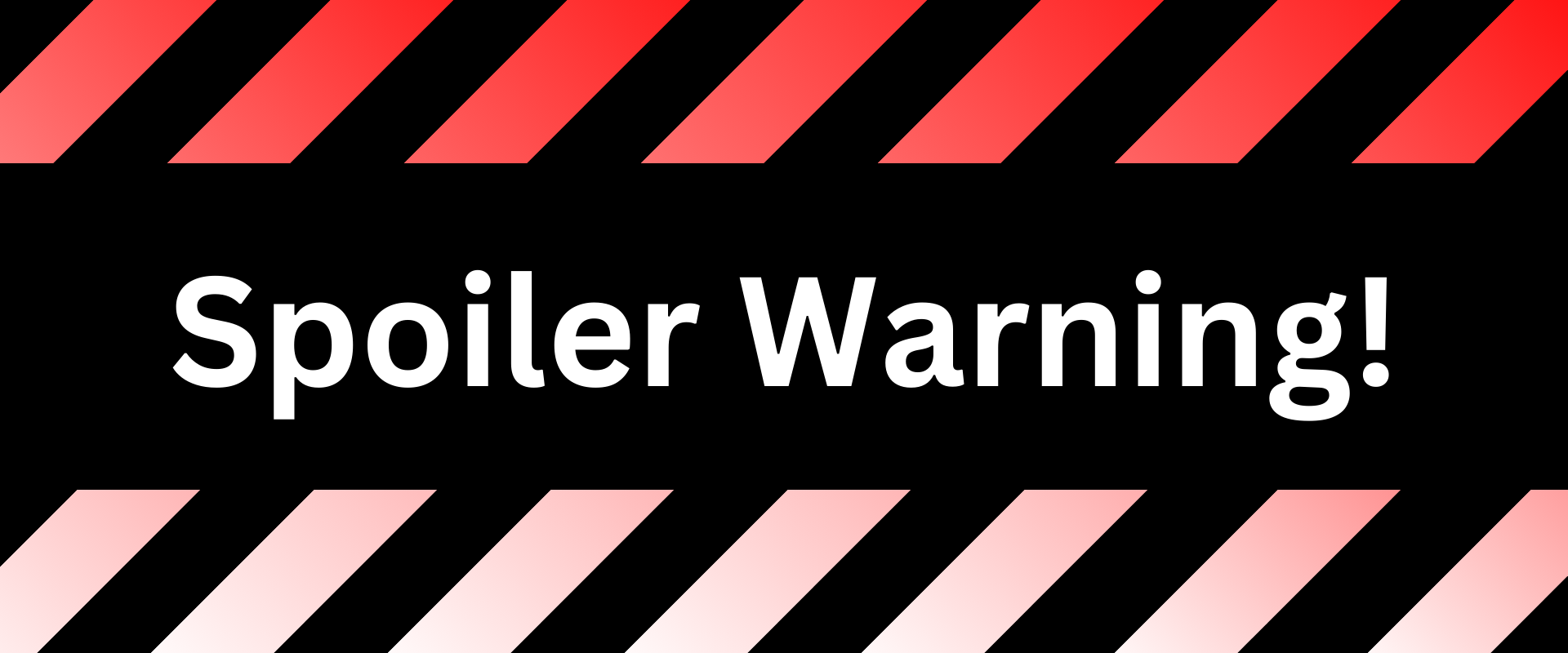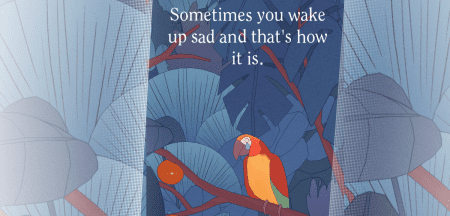Welcome to my new op-ed series, Therapy Gaming, where I’ll be exploring some of the more emotional topics within video games.
While there’s a lot to be said about what Supergiant Games’ 2011 hit Bastion represented for a then-nascent indie gaming scene ready to take on AAA juggernauts, this essay focuses on the stories within the game. In this piece, we’ll discuss Bastion’s narrative structure, its use of multiple endings, and its relationship with its sister game, Transistor. We’ll talk a lot about consequence and growth, and when that growth is hampered. But, most importantly, we’ll talk about moving forward and moving on.
A few notes from the author before proceeding:
Disclaimer: I am not a psychologist or psychiatrist, and my experiences are my own. You may disagree vehemently with my readings of these works; that’s rad! I love discussion and different perspectives, so please feel free to share your own ideas and experiences in the comments. I see it as an open space for healthy, progressive conversation. However, a discussion isn’t just a simple “Your idea sucks.”
Content Warning: Some of the below thoughts will touch on some really heavy shit. Like, really heavy. Suicidal ideation, drug/alcohol abuse, death, depression, grief, and anxiety will all be discussed in some form. I welcome everyone to view these works through the lenses in which I incorporate those themes, but please take care of yourself first. My DMs on Twitter, Instagram, or Discord (see my bio at the end) are always open for comments and venting.
Let’s get started!

At the Beginning
At the core of its experience, Bastion is a game about collapse. From the physical, world-shattering Calamity that hits Caelondia (the protagonist’s homeland) to the fracturing of personal relationships, Bastion meets our main characters at a tumultuous time. As the Kid, you set out to repair that fracturing through the Bastion: a location that promises a resolution to all this turmoil. What that resolution is, though, isn’t quantified until the end of the game.
It is worth saying here that we will be referring to the Calamity in Bastion as both an active and past action. The reason for this is twofold: First, although the Calamity began with an inciting action, the aftereffects are still very much in progress; second, as with most traumas, both within us and inflicted on the world around us, the Calamity doesn’t consist of just one isolated event. Think of it as a car crash: a big bang at the start, with lingering scars afterward.
Back to the story, though. Led by a survivor named Rucks, the Kid collects cores to bring power back to the Bastion, all without knowing what future he is building. Throughout his journey, the Kid comes across two other survivors: Zulf, a dignitary from the Ura, and Zia, a girl of Ura descent raised in Caelondia. Upon learning that the Caelondians caused the Calamity in their attempts to destroy the Ura, Zulf destroys part of the Bastion and kidnaps Zia, retreating back to the Ura.
Think of the Calamity as a car crash: a big bang at the start, with lingering scars afterward.

Over the next week, the Kid skirmishes with the Ura, finally finding Zia inside a large Ura stronghold. Zulf, meanwhile, is being attacked by his own people. Labeled a traitor and blamed for the Kid’s annihilation of their people, Zulf has been abandoned by everyone he chose to support. The Kid has two choices: Leave Zulf to the Ura’s rage while also destroying the last remnants of their society, or carry Zulf back to the Bastion in forgiveness. If the Kid takes Zulf, the Ura stop their assault and silently watch the two go.
In this moment, Bastion begins to play with the idea of character agency within the world itself. Up until now, the Kid has, relatively speaking, blindly followed Rucks’ instructions: Collect cores, rebuild the Bastion, fix the world. Now, the Kid has a choice. He (and we, the player) can decide to forgive Zulf for his actions, and his role in our own suffering, or we can allow him to stay a scapegoat for his nation’s anger.
I’ve always been touched by this humanization of Zulf. He is a person who made mistakes in anger and caused harm along the way. But the Kid is capable of forgiveness and acceptance of someone’s actions. This is a truth I’ve long wanted to believe in myself, that I am capable of forgiving without forgetting, to carry the weight without burying it. It goes without saying, but I’ve always chosen to accept and forgive.
The Kid is capable of forgiveness and acceptance of someone’s actions. This is a truth I’ve long wanted to believe in myself.
Evacuation or Restoration?
Reunited with the Kid at a fully powered Bastion, Rucks reveals how the Bastion can undo the Calamity: by using a time machine to go back and undo all the damage. Gone will be the death and decay; gone will be the pain and hurt. The Survivors will forget the relationships they’ve built, and there is no promise the Caelondians won’t fire a weapon again. Still, there’s a chance all of this can be undone.
But there’s another option. The Bastion can also evacuate the Survivors, to live life elsewhere and start anew. And it’s here, for the first time, that the player hears a different voice—not the deep and sultry tones of Rucks, but the soft and bright voice of Zia. She reminds the Kid that the world wasn’t perfect beforehand, and that all people have suffered since the Calamity.
Despite their struggle, the Survivors have made something new here. They’ve built relationships and found forgiveness in this fractured world. To Zia, that’s more important than simply going backward. She asks the Kid to forgive the world that hurt them all, and to continue making something new. Together.
It was here that I found peace in a way I never had before. My history is littered with poor choices and life-shaking events. Early in life, I had to deal with things I wish no one had to see. Alcoholism and depression tore me apart. Death and decay struck relentlessly. For a time, all I wanted to do was go backward and give myself the ability to make different choices. Even if nothing changed, just the chance to undo it all was intoxicating.
Even if nothing changed, just the chance to undo it all was intoxicating.

Paper Boats
Before I share more, I want to pivot to Bastion’s spiritual successor, and Supergiant’s second game, Transistor.
Released three years later, Transistor tells a similar story to Bastion, with a few notable departures. A voiceless protagonist named Red is guided by a narrator, this time unnamed, through a world that is currently being destroyed due to the actions of the people in charge. A former opera singer, Red awakens after an attack to find her voice stolen and a man dead, impaled with a sword called the Transistor. It is through this sword that she is guided by the unnamed man’s voice, and it’s this sword that sparked my unease within the story.
Echoing Bastion, Red is greeted by a world fracturing around her. In Transistor’s case, the world is being slowly digitized to meet the idyllic desires of the masses through an AI known as the Process. The officials in charge of the Process have lost control, leading the AI to rampantly reform and reinterpret the landscape.
After fighting through and stopping the Process’ advance, Red finds herself back at the beginning of the game, in front of the man’s body. We learn that this man was Red’s bodyguard and love, and that although Red can undo the Processed landscape and build anew, she cannot bring him back to life. The man’s conscience, stored within the Transistor, begs Red to keep going—to live on for him and keep him close. But knowing she can never regain her voice or revive the man she loves, Red sits next to her love’s body and silently impales herself with the Transistor. This uploads her consciousness into the digital world, reuniting her with both her voice and her love.
Here, we have the two extremes when faced with the ability to confront trauma. In Bastion, you can choose to go back and undo or move forward with what you know about the world. In Transistor, the player has no agency: Red makes her choice and we simply witness the outcomes. There is beauty in the ending; Red is peaceful and happy, living an endless life in a different form.
And I hated it.

Two Sides of One Coin
This brings us to the crux of this piece. Where I found beauty in Bastion’s message of purposeful acceptance and moving forward with your consequences, Transistor’s peaceful acceptance of the world as it is infuriated me. It’s taken years for me to piece together why I feel so differently about these games, given that, on their faces, the differences aren’t stark. Both narratives ask the player character to accept circumstances, after all. What does it matter if one does it moving forward and one does it standing still?
The difference, I’ve discovered, is better answered with a different question: What is acceptance? Do you feel acceptance is taking in the world around you, flaws and all, and sitting with it? Or do you feel acceptance is taking in the world around you, flaws and all, but choosing to move forward anyway?
Both narratives ask the player character to accept circumstances, after all. What does it matter if one does it moving forward and one does it standing still?
What angered me was that Red gave up the ability to change, to grow and develop, and to heal. She accepts what has happened to her, yes, but chooses to let that define her forever rather than continue moving forward.
The latter is what struck me about Bastion: It’s a game that so wholeheartedly shouts that life is better lived than repeated that it uses an entirely different narrator to say it. Bastion tells the player that life doesn’t stop just because bad things happen; it keeps going no matter what. And even if you could go back, who’s to say it would change anything? While Bastion doesn’t outright say the Calamity occurs again during the Restoration ending, it is heavily implied that the same strife and conflict leads to the same result again.

Setting Sail and Coming Home
Bastion confronts the player with the concept of stagnation in acceptance, and gives players the ability to say “no.” To take what’s happened and move forward. Rarely have I seen media, let alone games, truly confront that ideal with such a sharp rebuke. For generations, American society has preached that we must simply accept what happens to us. To take it in, internalize it, and wrestle it down, or else we won’t make it.
Transistor is a great example of this: Red sees what has happened to her, sees what the world would look like moving forward, and makes an informed decision to accept a different, stagnant form of life. And while there is beauty in choosing one’s own reality, it also speaks to that stagnation. That acceptance means deciding to drown in it.
I deeply believe otherwise, having learned through life and experience. When all of those things happened to me, I kept myself going with one simple mantra: No matter what, the sun will come up tomorrow. I could wallow, I could fight it, I could kick and scream, but no matter what, the world was going to keep going. And if I wanted to see that day, I needed to stop fighting the ghosts of the past and keep moving forward.
There is no “right” answer to what acceptance of trauma is. As I’ve said often, there is true beauty in the stillness of Transistor. But Bastion reminded me that there is life after a Calamity.
You can keep going. There is no wall you can’t move past, even carrying the weight of what has happened to you. Other people are carrying that weight with you, so lean on them. Make something beautiful. While you can never go back and undo what has happened to you, you can still grow and experience that new life. It may be fractured, and it may be difficult. But we can always set sail for a new tomorrow.
There is no “right” answer to what acceptance of trauma is. But Bastion reminded me that there is life after a Calamity.

What’s Next To Discuss
While the name of Therapy Gaming may change, I look forward to tackling similar topics in my editorials moving forward. Everything that games can make us feel, I’ll be sure to touch on.
Thank you so much for reading! Next month, I plan to revisit Brothers: A Tale of Two Sons in celebration of its 2024 remake.
Gary is a jack-of-all-trades video game enthusiast based in Boston, MA. A semi-professional fighting game player, even less professional Apex Legends player, and even less professional adult, he spends most of his time poking at strange indie gems and reading about the need for more diverse voices in gaming criticism. He invites anyone to recommend anything he's missed in the gaming world via Twitter or BlueSky, where he can found under the username @grtnpwrfl. When he isn't spending his time playing games, Gary is an avid New England Patriots fan and frequent hiker.












